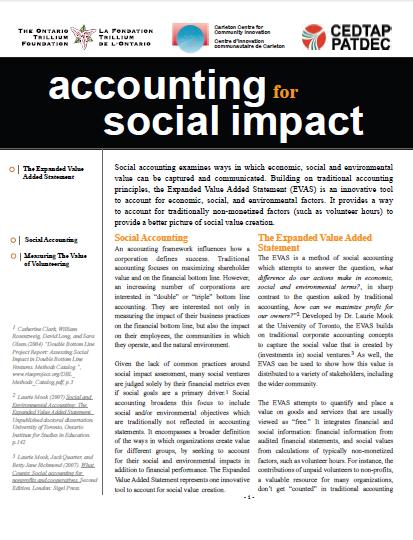The EVAS is a method of social accounting which attempts to answer the question, what difference do our actions make in economic, social and environmental terms?, in sharp contrast to the question asked by traditional accounting, how can we maximize profit for our owners?”2 Developed by Dr. Laurie Mook at the University of Toronto, the EVAS builds on traditional corporate accounting concepts to capture the social value that is created by (investments in) social ventures.3 As well, the EVAS can be used to show how this value is distributed to a variety of stakeholders, including the wider community.
The EVAS attempts to quantify and place a value on goods and services that are usually viewed as “free.” It integrates financial and social information: financial information from audited financial statements, and social values from calculations of typically non-monetized factors, such as volunteer hours. For instance, the contributions of unpaid volunteers to non-profits, a valuable resource for many organizations, don’t get “counted” in traditional accounting statements. The EVAS provides a methodology that can account for some of these important contributions to illustrate the social value
created.





